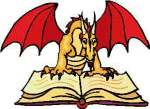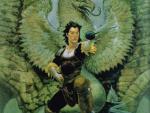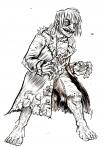Currently reading:
Lovecraft Country by Matt Ruff - Not that good, so far. The author obviously did a ton a research into the Jim Crow era (and is sharing it all), but the cosmic horror aspect isn't well done and while he gets it (yeah, systemic racism is bad... obviously) he also doesn't get it (the characters are essentially props, and their reactions to the environment they are living in seem to lack a certain... humanity). It's also not really a novel, more a collection of linked short stories; vignettes to demonstrate his point, even. It's a good point, but far too didactically handled, I think.
The Boy on the Bridge by ML Carey - Pretty good so far. The reader's familiarity with the setting is used to good effect. And he's killing it on the little details; how
do you test if you're pregnant during the apocalypse?
The Better Angels of Our Nature by Stephen Pinker - For a book with such an optimistic premise, this thing is seriously depressing. If you want to demonstrate how and why the present day is the least violent time in history, you also have to demonstrate how and why the rest of it was much, much worse... with copious examples and analyses. Ouch

This book makes me sad for our species.
Always Coming Home by Ursula Le Guin - She was simply the best, and it shows.
This post has been edited by stone monkey: 09 March 2018 - 12:05 AM
If an opinion contrary to your own makes you angry, that is a sign that you are subconsciously aware of having no good reason for thinking as you do. If some one maintains that two and two are five, or that Iceland is on the equator, you feel pity rather than anger, unless you know so little of arithmetic or geography that his opinion shakes your own contrary conviction. … So whenever you find yourself getting angry about a difference of opinion, be on your guard; you will probably find, on examination, that your belief is going beyond what the evidence warrants. Bertrand Russell

 Help
Help



























